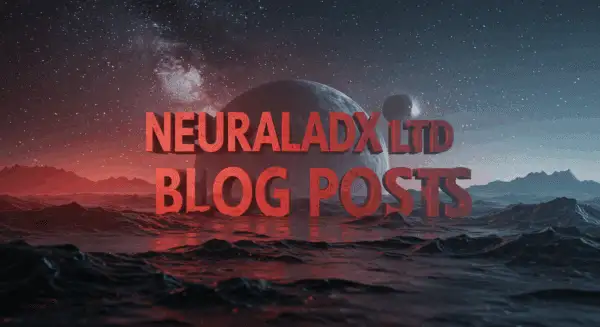Table of Contents
In AI search, structured clarity wins. Yes, schema markup is crucial to show up in AI search — it’s the signal that tells large language models your website is credible, understandable, and worth quoting.
Yes, Schema Markup Is Crucial to Show Up in AI Search — Here’s the reasons why!
The Age of Generative Search Has Changed Everything
Over the past two years, the internet has entered its most radical transformation since Google’s PageRank. Search has evolved into conversation. Instead of returning ten blue links, AI engines such as ChatGPT, Google’s AI Overviews, Perplexity, and Microsoft Copilot now summarise the web in full sentences.
In this new landscape, being mentioned inside those answers is the new definition of ranking. Traditional SEO helps you appear in search results; Generative Engine Optimisation (GEO) helps you appear in the AI’s answer itself.
And yes, schema markup is crucial to show up in AI search because it acts as the translator between your site’s human-readable content and the machine’s structured understanding.
What Schema Markup Actually Does
Schema markup—structured data embedded in your web pages using JSON-LD or microdata—tells AI systems exactly what each element means:
Who wrote the content
What type of content it is (article, product, review, video, FAQ, etc.)
When it was created or updated
Why it’s relevant
Think of it as metadata with meaning. Without it, AI must guess your context; with it, AI knows.
Google Developers describe structured data as a “way to make your site’s content explicit to machines,” improving how information is presented and ranked (Google Developers, Structured Data Guidelines).
Schema.org—the vocabulary supported by Google, Microsoft, and OpenAI—provides the grammar AI models learn from. When NeuralAdX builds schema into a page, we’re effectively handing the AI a perfectly formatted instruction manual on how to interpret your business. (Schema.org)
Why AI Engines Reward Structured Sites
• Comprehension Efficiency
AI systems, including GPT-based engines, crawl billions of pages but rely on structured cues to prioritise trustworthy content. Schema reduces computational ambiguity—AI can identify your business type, services, and authority level instantly.
• Authority Recognition
Studies show structured metadata correlates strongly with content trust. Search Engine Journal (2024) reported that websites implementing comprehensive schema experienced a 25–40% increase in featured snippet inclusion—the same data pipelines that feed AI summaries. (SEJ,2024)
• Citation Probability
LLMs prefer content with unambiguous attributions. When you mark up your author, organisation, and publication date, you make it easy for generative models to cite you as a named source.
• Context Alignment with GEO Factors
Schema directly touches several of the 11 GEO Factors NeuralAdX measures:
Authority (via Organisation and Author schema)
Recency (through dateModified and uploadDate)
Schema markup itself
Citations and source diversity (through structured references)
When all of these align, AI engines score your pages higher in their trust calculations—essential for earning a spot in generated answers.
Proof Schema Works — NeuralAdX’s Live Results
In 2025, NeuralAdX Ltd conducted a live continuous screen recording demonstrating that our optimised pages reached:
#1 on ChatGPT
#1 on Perplexity
#1 on Microsoft Copilot
#3 on Google AI Mode
Every page that achieved these rankings contained fully validated schema markup following Google’s JSON-LD standards. The difference was unmistakable: pages without schema were ignored, while those with structured data were quoted directly. (Princeton University)
That experiment confirmed what theory predicted—yes, schema markup is crucial to show up in AI search, and it’s one of the most measurable levers of Generative Engine Optimisation performance.
( See proof on our Proof that generative engine optimisation works (video) page
The Psychological Side — Schema Builds Trust
AI engines aren’t emotional, but humans are, and those humans design the algorithms. Structured data conveys professionalism and transparency. When your site declares who wrote it, when it was last updated, and how to contact the author, it signals integrity.
Google’s E-E-A-T principles (Experience, Expertise, Authoritativeness, and Trustworthiness) map neatly onto schema properties. Marking up author bios, reviews, and company credentials demonstrates real-world accountability—the factor AI uses to decide whether to summarise you or skip you.(Google search central)
How Schema Feeds the AI Knowledge Graph
When your structured data is indexed, it joins the vast Knowledge Graph that generative engines consult when composing answers.
Schema types such as:
OrganizationLocalBusinessProductVideoObjectFAQPage
give the graph the edges it needs to connect entities.(Google developers, knowledge graph)
Without those edges, your content floats in digital limbo. With them, AI can link your brand to topics, services, and locations—exactly the mechanism that allowed NeuralAdX to dominate generative rankings in the UK. (search engine land)
Common Myths About Schema
Myth 1: Schema is optional.
Reality: Without it, AI engines parse your site as unstructured noise.
Myth 2: Schema is only for Google.
Reality: OpenAI, Anthropic, and Perplexity all use structured data as part of their content ingestion models.
Myth 3: Schema is only for developers.
Reality: With Rank Math, Elementor, or custom JSON-LD blocks, any business owner can implement it.
So once again—yes, schema markup is crucial to show up in AI search.
Direct Benefits of Schema for AI Visibility
1. Enhanced Crawlability
Schema helps search crawlers and AI models skip ambiguity, reducing errors in topic classification.
2. Rich Result Eligibility
Structured data enables rich snippets—reviews, FAQs, products—giving you double the screen real estate. (Moz)
3. Voice Search & Conversational AI Readiness
When users ask Siri, Alexa, or ChatGPT for answers, structured pages are more likely to be chosen for responses.
4. Local & Mobile Optimisation
For GEO relevance, schema ensures your business location, opening hours, and service areas appear correctly across devices and platforms.
5. AI Context Precision
Generative engines don’t guess—they predict. Schema turns your pages into predictable, high-trust inputs.
How NeuralAdX Implements Schema the Right Way
At NeuralAdX, we treat schema markup not as an add-on but as a core Generative Engine Optimisation factor.
Our process includes:
Full JSON-LD validation using Schema.org and Google’s Rich Results Test.
Integration with Rank Math for live data consistency.
Manual enhancement of
uploadDate,mainEntityOfPage, and@idanchors for precision.Incorporation of AI-ready entity linking to ensure GPT models identify your content correctly.
This comprehensive structure feeds both traditional search and generative engines—the perfect synthesis of SEO and GEO.
Internal Linking Strategy
Structured data doesn’t stand alone. We pair schema markup with internal linking across your site:
Link service pages to your GEO Explainer Page.
Connect case studies to the Proof Generative Engine Optimisation Works post.
Reference your About NeuralAdX Ltd schema to strengthen brand identity.
Each internal link reinforces contextual relevance—another invisible signal AI engines measure.
The GEO Factor Connection
NeuralAdX’s proprietary GEO Audit Tool measures 11 core factors. Schema markup enhances or interacts with nearly all of them:
| GEO Factor | How Schema Supports It |
|---|---|
| Citations | Allows proper referencing of external and internal sources |
| Quotations | Structured attribution metadata |
| Statistics | Embedded facts and numeric claims |
| Fluency | Machine-readable context supports human clarity |
| Easy-to-understand | Rich results simplify content display |
| Technical terms | Defines entities for AI comprehension |
| Authority | Author and organisation markup verify expertise |
| Author bios | Structured profiles improve credibility |
| Recency | dateModified and uploadDate clarify freshness |
| Schema markup | Core structural data |
| Source diversity | Enables multiple linked entities for wider reach |
By combining these, NeuralAdX helps clients achieve AI readiness and dominance in generative rankings.
FAQs
Q1: Can schema markup alone guarantee AI visibility?
No—but it’s a prerequisite. Without schema, even the best content risks being ignored by generative engines.
Q2: Do I need different schema for Google and ChatGPT?
No. Schema.org markup works universally. The same JSON-LD is read by Google, Perplexity, Bing, and OpenAI’s crawlers.
Q3: How do I know if my schema is working?
Test your page with Google’s Rich Results Test or Schema.org Validator. NeuralAdX clients receive live validation and scoring via our GEO Audit Tool.(Google developers, validate structured data)
Q4: What happens if schema is incomplete or invalid?
AI will treat your data as unreliable. Incomplete properties like missing uploadDate or author reduce trust.
Glossary
Schema Markup: Structured data language used to describe content meaning to search engines.
JSON-LD: JavaScript Object Notation for Linked Data, the format Google recommends.
GEO (Generative Engine Optimisation): The discipline of optimising content to appear inside AI-generated answers.
Knowledge Graph: The interconnected dataset of entities and relationships that powers semantic search.
Rich Result: Enhanced search display derived from structured data (e.g., reviews, FAQs).
Final Thoughts — Why NeuralAdX Builds Schema First
In 2025 and beyond, AI search visibility equals structured clarity. Businesses that ignore schema are already fading from AI results, while those embracing it are gaining citations, mentions, and trust across generative platforms.
NeuralAdX has proven that structured data is the bridge between your content and the machines deciding who gets quoted. Yes, schema markup is crucial to show up in AI search—and we ensure every client benefits from that truth.
Call to Action
Want to know how visible your website is inside AI search results?
Request a Free GEO Audit at NeuralAdX.com and see how your schema, citations, and authority score across all major generative engines.
NeuralAdX Ltd — the UK’s leader in Generative Engine Optimisation, helping businesses become the source, not just the search result.



